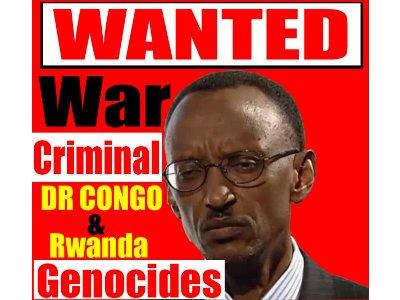Un Pain au Chocolat: The Schism in France
By BARRY LANDO
Paris.
France is in deep trouble. This country has spent several billions of Euros over the past 11 years sending its troops, planes and ships, to join the War against Terrorism in Central Asia. Now, however, the French are finally discovering the threat of radical Islam is at home, under their own noses.
According to a poll in today’s centre-right Figaro, 82% of the 44,000 French questioned fear an increase in Islamic terrorism in France. Provoking this fear, sensational headlines about a network of 12 jihadis—converted in overcrowded French prisons—and rounded up by police over the past few days.
But, more serious, than the threat of radical Islam is the fact that France is menaced by mounting racial tensions stoked by extremists on both sides.
I discussed the rise of radical Islam among France’s five million Muslims in previous blogs. An equally alarming development is that, on the other side, Islamophobes are also on the rise.
This past weekend, one of the most prominent of Nicolas Sarkozy’s former ministers, Jean-Francois Cope, who is campaigning to become leader of his party, the UMP, , made headlines with the story of a good “French” working class family, whose son, as he was leaving school, had his pain au chocolat ripped from his hands by “a young punk” (obviously Muslim) who told the distraught little boy he had no right to be eating during the Muslim fast of Ramadan.
Overnight, the little French boy losing his pain au chocolat to a brutish Muslim kid has, in the eyes of many French, become a symbol of what’s really wrong with this country.
It’s also become endlessly discussed on French television.
On the Grand Journal last night, one of the commentators, Jean Michel Aphatie, pointed out that, if you check the dates of Ramadan –which was in the summer for the past couple of years–there’s no way this incident could have recently happened, if it did happen at all.
In any case, as Aphatie pointed out, Cope’s views are far from original. He presented a video of former French President Jacques Chirac, delivering a stunningly crude anti Arab/Muslim diatribe at a banquet in Orleans in 1991:
Imagine, said Chirac, a working man, who together with his wife makes 15,000 francs a year, and is sitting on the landing of his little flat and sees across from him, on the same landing another “head of a family with three or four wives and twenty kids, who, naturally without working, is making 50,000 francs a year–from welfare.
“You add to that,” said the President of France, “the noise–and the smell–and the French worker goes crazy.”
The only difference between Cope and Chirac, suggested, Jean-Michel Apathie, was that Chirac was probably a little drunk at the time.
Indeed, here in Paris, my wife is constantly being forwarded some astonishingly blunt racist videos–from well meaning friends. Like one received today, that apparently originated with a Catholic professional, we know, an educated, upper class man; who sent it to another Jewish friend of ours, also charming and highly educated; who forwarded it to us:
It’s called “Les Envahisseurs” and is a dubbed takeoff of the science fiction series, The Invaders, from the Sixties. While the original series dealt with evil creatures from another star system trying to take over the earth, this modified version substitutes the intergalactic villains with, of course, the Muslims in France.
They’re fomenting jihad, taking over the streets with their prayers, demanding that schools serve only hallal meat. When the hero turns for help to the authorities, he finds that it’s too late—they too are Muslims!
The furor over Cope’s pain au chocolat tale was still on the mid-day TV news today in Paris.
We watched as France’s Prime Minister proclaimed his determination to go after all forms of “extremism.”
On the same show there was also video of hundreds of outraged French workers, whose jobs are at risk because of factory shutdowns, being blocked by riot police from entering the lustrous automobile show currently going on in Paris. One of the factories being shut down is Peugeot.
The TV news also had live coverage of French President Holland presenting his plan to totally overhaul France’s creaking education system. Unemployment among French under 25 is 23%.
After the President had finished, one expert interviewed on the news show asked, with the government having to drastically cut back its budget, where the money for reform would come.
As he was talking, a crawl ran across the bottom of the screen, a bulletin about the round up members of the internal investigation unit of the Marseilles police. Turns out 19 of them have been hauled in, targets themselves of corruption charges.
One bright spot: A sponsor of the TV News today was the French Justice Ministry, with a major job offer: they’re looking for more prison guards.
Meanwhile, some 1200 French troops remain in Central Asia, continuing to support the “War on Terrorism.”
Barry M. Lando, a graduate of Harvard and Columbia University, spent 25 years as an award-winning investigative producer with 60 Minutes. His latest book is “Web of Deceit: The History of Western Complicity in Iraq, from Churchill to Kennedy to George W. Bush.” Lando is currently completing a novel, “The Watchman’s File”, concerning Israel’s most closely guarded secret (it’s not the bomb.) He can be reached through his blog.
Let’s keep this award-winning site going!
| Yes, audiences applaud us. But do you?If yes, then buy us a beer. The wingnuts are falling over each other to make donations…to their causes. We, on the other hand, take our left media—the only media that speak for us— for granted. Don’t join that parade, and give today. Every dollar counts. |
|---|
| Use the DONATE button below or on the sidebar. And do the right thing. Even once a year. |
Use PayPal via the button below.
THANK YOU.
//









